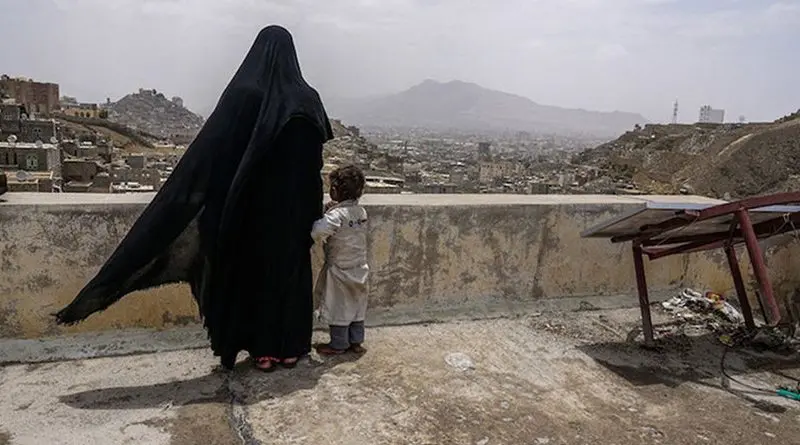Yemen’s Destructive Identity Crisis – OpEd
By Arab News
By Fatima Abo Alasrar*
Yemen’s society has fragmented. The formal and informal ties that hold citizens and groups together continue to fray. Late last year, groups of displaced people from the northern Houthi-controlled areas were turned away by local authorities from the temporary southern capital of Aden as a result of fear and mistrust. Other travelers across the country risk death for having the wrong accent at a checkpoint. All over Yemen, identity politics are shaping the way people deal with one another. Without social cohesion, the peace process will face fundamental problems that could threaten the country’s existence.
Social cohesion has always been dismissed as something that could be addressed after the end of the civil war rather than before. This relegation of social cohesion to an aspect of little consequence can in part be attributed to the assumption that Yemen’s social fabric is strong. After all, observers are often deceived by the level of civility and cordial attitudes that Yemenis have for one another in formal settings. It could also be attributed to the manipulation of facts at the state level, including controlling the narrative on aggrieved communities through media blackouts and misinformation. The civil war and chaos that ensued are ultimately the result of this weakened fabric being torn to shreds on both the state and societal level.
Many of the cultural stereotypes and misconceptions that undermined social cohesion in the first place were seeds sown by the state to suppress opposition. “The state pursued divisive agendas that ultimately led to its own fragility and destruction through granting privileges for groups that had no right to acquire them,” said Ahmed Al-Saleh, founder of the Aden Foundation for Strategic Studies, adding that “justice is needed if people are to trust the state.” One such example is the state’s propagation of the image that all southerners are Marxists who don’t adhere to Islamic values. Such allegations only serve to alienate a portion of the population and further undermine social cohesion.
To make matters worse, concepts that one would normally associate with the strengthening of social cohesion were leveraged as a means for further manipulation by the state. Terms like “nation” and “unity” were actively deployed in order to suppress dissent. For example, when people from the south expressed any criticism of the government, they were dubbed as “infilsali,” meaning “separatists.” According to a Yemeni resident: “One feels insulted hearing the word ‘unity’ because it was used to justify oppression in the name of national identity.” The state chose to use the concept of unity as a weapon to subjugate and intimidate.
In the absence of a strong national identity, groups have strengthened their own sense of identity through various means, including holding prejudiced views against others that oppose them. The Houthis were the masterminds of this technique. Their tactics are clearly seen in their infamous anti-Saudi and anti-Western slogans, such as “Death to America.” The Houthis also ritually conduct “forced cultural indoctrination tours,” in which they compel government employees and soldiers alike to attend workshops geared toward enforcing their sectarian beliefs. Although this may seem fanatical, such rituals often serve as the furnaces in which both cohesion and identity are forged.
In the south, grievances and exploitation serve as the fodder that fuels the formation of social cohesion. Southerners’ identity is intimately rooted in their former experience as a progressive, independent country before unification in 1990. Many southerners feel that unity overshadowed their cultural identity and reminisce about their former civil state, as opposed to the heavily tribalized state known by their neighbors in the north.
But most important for southerners is the issue of security. The overarching lack of state security services has led many southerners to become increasingly distrustful of outsiders in recent years. The rising number of Al-Qaeda and Daesh attacks, which are almost exclusively focused on the south, bear the hallmarks of the structural violence that southerners have faced since unification.
Whether distrust, prejudice, poverty or security is the impetus for the formation of a group’s identity, all narratives converge on a similar “us versus them” mentality. With the presence of so many different identities vying for control, conflict is inevitable. In Yemen, civil war has served to exacerbate this toxic mindset, but it is important to remember that, at the core of everything, it was the prolonged disintegration of social cohesion that caused such regional fragmentation. At this point, it is nearly impossible to reconcile Yemen as a unified state, but if equilibrium is ever to be restored in the future, it is important to remember the factors that stripped Yemen of its identity in the first place.
• Fatima Abo Alasrar is a senior analyst for the Arabia Foundation in Washington DC. Twitter: @YemeniFatima

